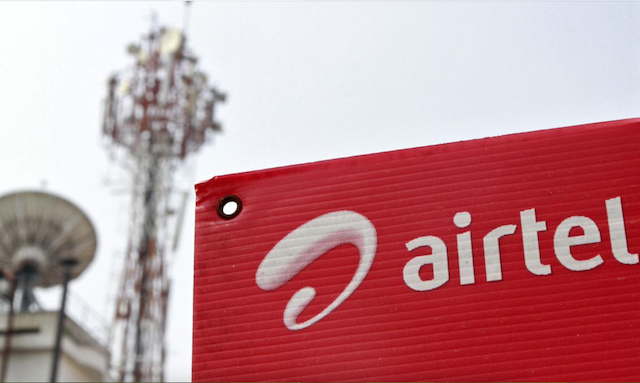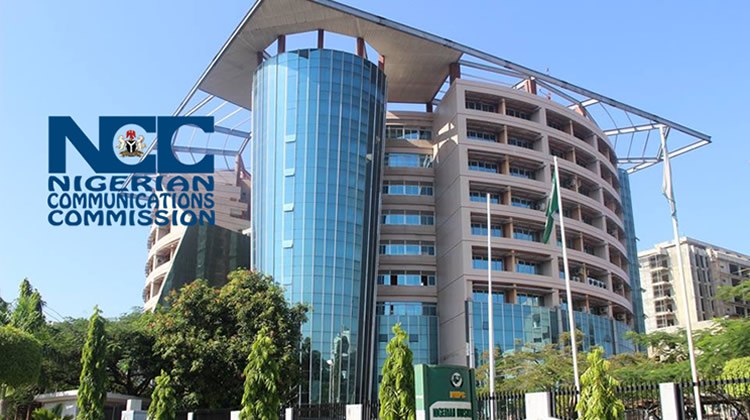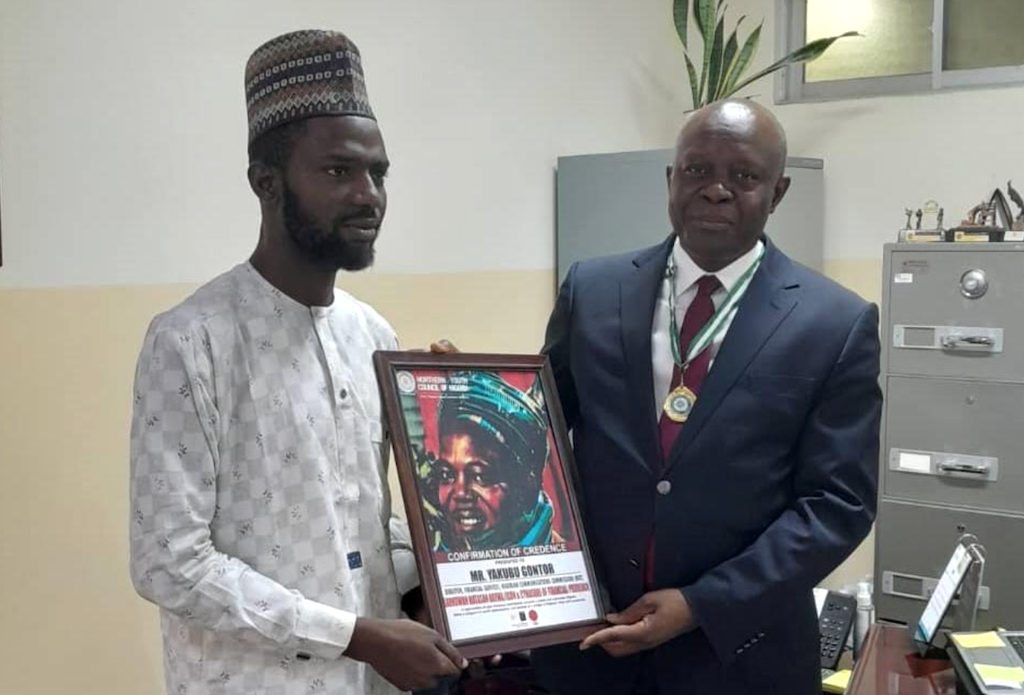It was the final sandbagging of the Nigerian Communications Communication (NCC). An ignoble fait accompli intricately woven by very devious hearts and presented to an acquiescing group of lawmakers with superficial understanding of how some politicians could deploy terrible politricks to ruin the independence of even one of the most stable regulatory agencies in the country.
Oh, Regulatory Capture again. Two words that effectively capture the appropriation of the operations of a regulatory organisation by government or powerful people, including politicians. But the story unfolding here is more than Regulatory Capture. It is a subtle plan to lacerate the NCC into the unfortunate position of impotence and make it a shell of its once vibrant self.
Really the meeting by the Senate Committe on ICT and Cyber Security on April 27, 2023, shouldn’t be about the NCC but about NITDA whose Amendment Bill was enjoying a posthaste trip to a final place of approval. The 2002 NITDA Act was being repealed and to be replaced by the Bill under processing at the National Assembly, which should provide for the Administration, Implementation and Regulation of Information Technology Systems and Practices As Well As Digital Economy in Nigeria and for Related Matters.
Everything was clinically thought out. The mise en scene enjoyed an occultic reverence. The Senate Committee would have the hearing that day and take its decision to the Senate floor a few days later for approval and transmission to the lower House for concurrence. The deed would be done and the Bill will become an Act.
Beautiful script. In the hall were promoters of the Bill, Communications and Digital Economy Minister, Dr Isa Pantami and NITDA Director General, Kashifu Inuwa Abdullahi. This writer gathered that both were feeling very cool and perhaps already relishing Pantami’s farewell gift to the industry. Industry reps were also present and so was the regulator who perhaps was on the side of a minister whose intention towards the industry it superintends was far from salutary. It may be more fitting to describe his action as poisoned benevolence and plain mischief.
The thing about good scripting is the surprise element which pops up when it is least expected. Just when it was going to be a wrap (I am borrowing a TV terminology) the Committee asked for further submissions. A voice came up, a very still voice but very unintimidated. Like the still voice of Al Pacino (Lt. Col. Frank Slade) rising up to defend O’Donnel (Charles) at Baird, a prep school in New England, in the 1992 Oscar winning film, Scent of a Woman. Life could visit individuals and organisations with regrettable vicissitudes. That voice came with the NCC delegation. The Committee members were shocked as they promptly reminded the voice that the boss of the NCC, the minister, had spoken.
The voice insisted that it had nothing but a little observation and an addition to what the minister had said. The voice observed that the Nigerian Communications Act 2003 has been so pressurised that it was becoming difficult for the NCC to carry out its responsibilities. The Act, according to the voice, has all it takes to properly regulate the telecommunications industry, which is totally different from the role of NITDA as a development agency. What the NITDA Bill seeks to do, the voice further observed, is to borrow so much from the Communications Act and present them as its new functions. There would be confusion in the industry as a result of multiple regulations.
The voice was intrusively sane. “We should not have multiple regulations in the sector. It doesn’t augur well for the industry. NITDA is not a regulator but a development agency. The Bill significantly took so much from the NCA 2003”, the voice maintained.
Pandora’s Box, in all its beauty, has a way with trouble. The minister knew this and endured that seemingly informed effrontery.
But it was Ayoola Babatunde Oke Esq of ICT Derivatives Limited that got under the minister’s flesh. Oke, who introduced himself as an interested member of the public and an adviser to a former minister of Communications, read from a prepared paper, titled: A National Dialogue on the Pending NITDA Bill 2021.
His introduction, under The Purpose of the Bill, created some level of discomfort. According to him, “I have personally reviewed the new NITDA Bill and I cannot discern functional purpose. In my mind a Bill can be introduced when there is a need for a new law or need for a review of an existing law. A Bill is not made just for the sake of making a bill it must have a clear purpose and discernible agenda of what it seeks to address, which could be to restructure socio-economic or political culture and behavioural patterns or facilitate strategies to promote goals.”
He posited an understanding of the Ministry of Communications and Digital Economy by stating the functions of its parastatals as follows: NCC -ICT industry regulation; NITDA – IT industry support and development; NIPOST – Postal service delivery and access infrastructure; Galaxy Backbone – ICT infrastructure provision for Federal Government and its agencies; NIGCOMSAT – Commercialisation of Government’s satellite resources; USPF/NITDF – Managed fund to incentivise universal access; NFMC – Prudent and co-ordinated allocation of frequency resources; and Ministry of Communication Technology – Policy formulation and Policy impact assessment.
The foregoing is a hard summary devoid of emotions. Oke argued that the functions of NITDA have completely been altered to the point that the first 7 functions of NITDA under the new Bill did not exist in the current law.
“In the new Bill there is now a heavy presence of regulatory functions and powers and this raises the question if NITDA wants to continue as a Developmental Agency or a Regulatory Agency or both,” Oke observed.
The purpose of NITDA as it stands, Oke argued, is to implement a clear regulatory agenda. Here is proof according to his presentation.
“The purpose of this Act is to create an effective, impartial, and independent regulatory framework for the development of the Nigerian information technology sector and digital economy, which shall include:
“Regulate the use, development, standardisation, research, and application of information technology, emerging technology and digital services practices, activities and systems in Nigeria; Regulate the use of data for business and security analytics and intelligence, subject to any other law on the subject; and Regulate the acquisition and use of digital systems and services in Government establishments and create a framework for the auditing of Government information technology systems and digital services platforms,”
The ears have heard enough. The minister shot up from his seat, frothing with anger. A frustrated and retired civil servant who was a mere assistant to a minister shouldn’t have the guts to challenge a well written document informed by modern developments in the ever expanding and developing world of ICT and digital economy.
He has erudition behind him, he bragged, as he unfolded his long list of degrees. He even attended Harvard and some other big universities around the world. The ultimate is that he is a professor in his chosen field, and a professor cannot put out the wrong document. The NITDA Bill was well considered, in his opinion.
Perhaps, I should introduce Ayo Oke a little further. Before working with the minister, Oke was a Legal Assistant to Engr Ernest Ndukwe, former EVC of the NCC. In his position, he was privy to, or was even involved in putting together some foundation documents that have helped grow the NCC. Oke is smart and can be quite forceful in canvassing his point of view.
Having stated the above, I want to say I really do not see the source of the minister’s indignation. In spite of his demonstrated learning, there is obviously a misunderstanding of roles and responsibilities. Sections 23, 24 and 25 of the NCA 2003, are very clear about the roles of the minister which essentially have to do with policy formulation, determination and monitoring, and negotiating and executing international treaties for Nigeria. The minister made an offensive misstep in fighting to initiate a Bill for NITDA, one of the agencies under his ministry, and trying to force it through the National Assembly. What happened to fairness and equity in dealing with the other parastatals under him?
My little observation is that the minister has been permitted such overwhelming indulgence to the extent that even some of his excesses became normalised by his coterie of followers and even his bosses.
I will give a brief summary. Once appointed minister, Pantami took possession of the NCC building at Mbora, Abuja, which was built for the Digital Bridge Institute (DBI) by the Commission. Nobody ordered him back to the ministry. One of his first actions was to eject Hon. Abike Dabiri-Erewa, Chairperson of the Nigerian in Diaspora Commission, whose agency was kindly accommodated in the building by the NCC. In another moment, at an event in the building attended by President Muhammadu Buhari, Pantami got up twice to interrupt Prof Garba Umar Danbatta, EVC of the NCC, who was addressing the gathering, thus breaching protocol. No repremind, no warning.
One of Pantami’s cardinal policies was the National Identification Number (NIN) and Subscriber Identity Module (SIM) introduced late 2020, to link phones and national IDs, which would help curb insecurity by making it impossible for criminals to use mobile phones for their nefarious trade. Introduced at the height of COVID-19, the exercise remains a fiasco as insecurity has since festered. So much money has been wasted but nobody talks much about it now, except that the process has been tokenized for some people to make quick money.
In May 2022, the minister directed the NCC through a query that all NCC’s Public Programmes for the remaining period of the year must first be brought to his attention. The regulator did not have the liver to point the minister to the contents of NCA 2003. This writer is pained to inform that even now the minister approves daily routines, including ordinary internal travels that are done by officials of the Commission.
With questions not being asked of a super minister, the NITDA Bill was designed for an opportune moment of glorious departure. A befitting farewell gift for NITDA and a seed of chaos for the industry. But Providence supervened in the final moments, giving the NCC a reprieve it must seize with both hands.





